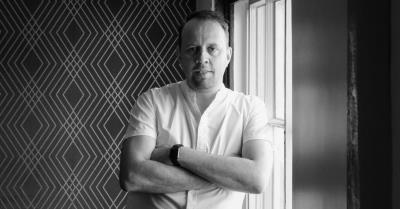25 May 2022

When he was just starting off, the chef and owner of MJP Restaurant in Cambridge considered his job to be his entire life, and he was willing to put everything on the line to be the best that he could be: his time, his relationships and his health, physical and mental.
And while he was busy making a name for himself, the chef moved in circles where nurturing one's health was seen as a sign of weakness.
Mark is reluctant to breach the topic of mental health within hospitality, not because as a subject it still carries stigma, but because he finds it hard to find his place in the conversation.
"In those early 2000s, however good it was, and however good the food was - and it was phenomenal - it wasn't right," he said.
"We treated people with contempt, we worked people too hard, I worked too hard and Daniel [Clifford] worked too hard. Things have had to change and things will change."
Now, at MJP, not only do he and his team only work three and a half days a week, but they treat each other - and themselves - with the respect they deserve.
"I've got my two children and my wife who I love with all my heart and I need to see them as much as I need to see the restaurant," he said.
"I know that's not sustainable for everyone," he added, "but it's not a case of work-life balance, it's that work is not the most important thing."
"There are times where things are more important and we need to be able to see when people are suffering."
Even with his experiences, having dealt with his own issues as a hospitality professional, Mark doesn't believe that mental illness is a problem inherent to the industry.
"We are very stiff upper lip in that we don't ask for help and we don't offer help."
"I don't think that as hospitality we should put the pressure on ourselves to think that we're not doing enough; we're not doing enough as a nation, we should all do more as personal people, as in ourselves, and with that, hospitality will get better."
"We've led such a life that it doesn't matter, so we have to get better in our own lives for hospitality to get better."